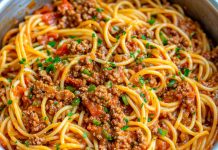Freezing foods is great for when you’ve bought in bulk and have excess, but don’t want to waste anything. And while you can safely freeze the majority of foods, there are certain things that will lose their taste, texture, and quality when put in the freezer.
1. Creamy Products

Creamy foods like yoghurt, sour cream, and dips will separate when frozen and then thawed. To keep the consistency of these products as it should be, don’t freeze them
2. Gravy

Since most gravy is thickened with cornstarch or flour, it, too, will separate when frozen. Eat your gravy while it’s hot!
3. Whole Eggs

Whole eggs (still in the shell) should never be frozen.
4. Soft Cheeses

Although harder cheeses are fine to freeze (cheddar, parmesan, etc.), soft cheeses (goat cheese, cream cheese, ricotta, etc.) shouldn’t be frozen.
5. Cooked Pasta

When you thaw cooked, frozen pasta, it will generally turn out extremely soggy. Cooked pasta is best never frozen, but if you do want to freeze it, ensure it’s on the al dente side.
6. Water-Based Fruits & Veggies

Fruits and vegetables with a high water content (watermelons, cucumbers, celery, etc.) will go very soggy when frozen and thawed.
7. Fried Foods

I’ve never been able to not eat a fried food until it’s done, so I can’t understand why anyone would want to freeze one. Anyway, fried food also turns out quite soggy when frozen and thawed.
8. Milk

Milk can technically be frozen, but it tends to become lumpy when thawed.










